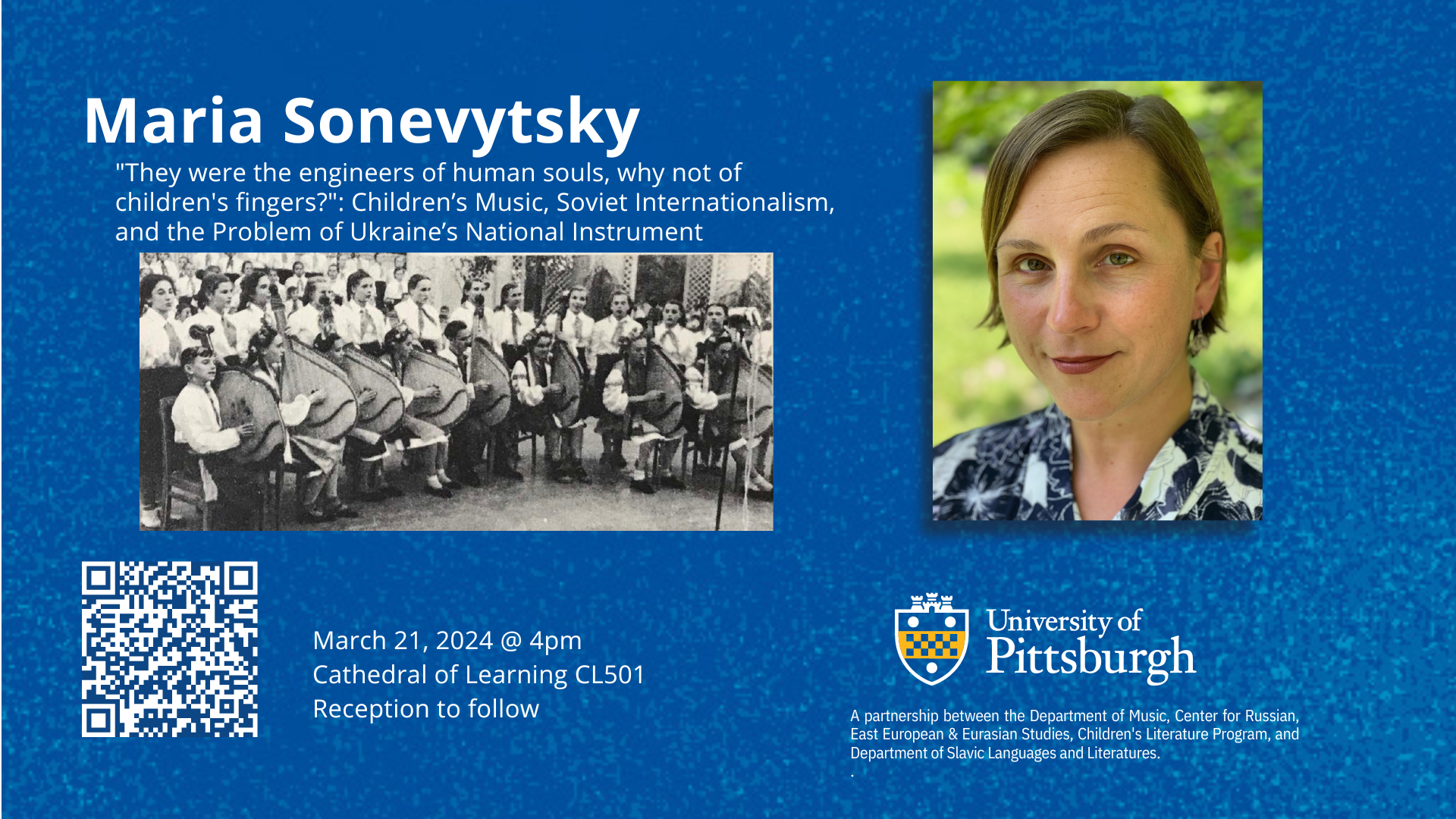501 Cathedral of Learning
Reception to follow

“They were the engineers of human souls, why not of children’s fingers?”: Children’s Music, Soviet Internationalism, and the Problem of Ukraine’s National Instrument”
How did the project of Soviet internationalism imagine a future for a “national musical instrument” like the Ukrainian bandura? Drawing on the archive of the Kyiv Palace of Pioneers (KPDU), the mass institution that provided afterschool opportunities for Soviet schoolchildren known as “Pioneers,” alongside interviews with bandura players, this lecture tells the story of the formation of the children’s bandura ensemble in Soviet Ukraine and the violent erasures that enabled its creation. The story begins with the consolidation of the bandura and the centuries-old bardic traditions associated with it as icons of Ukrainian national identity in the 19th and early 20th centuries. In the Soviet 1920s, the bandura became entangled in a series of violent erasures: as the “old style” of playing was repressed, as tradition-bearers disappeared, and as the bandura’s most flamboyant champion was executed by the Soviet state. Meanwhile, the Soviet project of rationalizing vernacular music in the service of building Communism saw the broad institutionalization of children’s music ensembles, including children’s bandura ensembles, at the premier Pioneer Palace of Soviet Ukraine. The history shows how children, imagined to be “powerful agents of revolution” (Kirschenbaum 2001) in the early Soviet period, were in fact often unruly vectors through which the ideological values of Soviet internationalism could be expressed. Based on archival materials and the testimony of a member of the first children’s bandura ensemble at KPDU in the late 1930s, this lecture reveals the contradictions that were inherent in engineering the Communist future through children’s music.
Maria Sonevytsky is Associate Professor of Anthropology and Music at Bard College.
https://mariasonevytsky.com
https://mariasonevytsky.com
Cosponsored by the Center for Russian, East European & Eurasian Studies, Children's Literature Program, and the Department of Slavic Languages and Literatures
